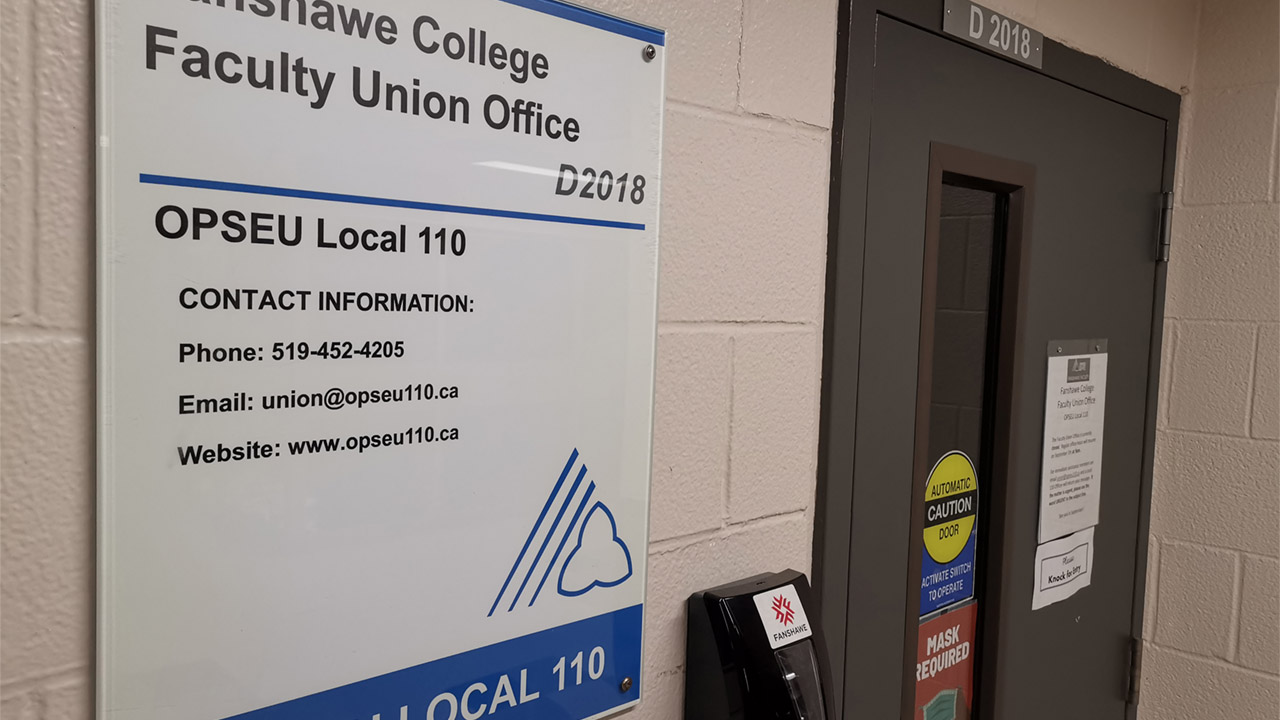Wages increase for academic employees
 CREDIT: MAURICIO PRADO
CREDIT: MAURICIO PRADOAcademic full-time Support Staff have achieved an agreement to boost benefits and salaries.
On Aug. 14, an agreement was reached between the Ontario Public Service Employees Union (OPSEU) and the College Employer Council (CEC) to boost benefits and salaries for full-time and partial load academic employees. On Aug. 25, an agreement was also reached to increase wages and benefits for full-time Support Staff. All staff will receive an additional 6.5 per cent increase on top of the 3 per cent increase they received under Bill 124, now totaling 9.5 per cent overall throughout the course of the collective agreement. Bill 124 was a law that restricted public sector employee’s yearly compensation increases to one per cent for three years.
OPSEU Vice-President Professor Ravi Ramkissoonsingh said academic workers at Ontario colleges are the latest group to land salary increases after Bill 124 was declared unconstitutional at the end of November of last year.
“We went through several rounds of our collective bargaining,” Ramkissoonsingh said.
Ramkissoonsingh said that with the legislation struck down, they could return to the table and try to mediate a new wage scale with the CEC. He expressed his happiness that partial-load employees would be receiving the same wage increase as full-time employees.
“Partial-load employees represent 42 per cent of our faculty. They make significantly less money than full-time faculty do,” Ramkissoonsingh said. “With this agreement, they will get the same wage increases of 9.5 per cent over three years as full-time faculty employees.”
He said that with this agreement, they were also able to increase the health plan paramedical coverage from $3,000 to $4,750 annually. He added that this increase would be implemented on Oct. 1.
“The overall round of bargaining lasted more than two years, which is unusually long for bargaining,” Ramkissoonsingh said. “We still have to sign the collective agreement, which we hope to do soon, within the next couple of weeks.” Ramkissoonsingh said the union is happy but not fully satisfied with the outcome, stating that they are still behind where they should be regarding salaries.
Notably, part-time faculty members (who work six hours per week or less) and sessional faculty members (who work 13 or more hours per week for a period of less than 12 months) are not included as part of this agreement and will not see any change to their wages.
“We are closer than before but not quite where we want to be. We were supposed to be at the middle point between university salaries and high school salaries in the province,” Ramkissoonsingh said. “We are still several thousand dollars behind.”
He stated they will go back into bargaining again next year in 2024. Ramkissoonsingh added 9.5 per cent is a nice increase, but it does not compensate for inflation.
“The [College Employer Council] wanted to protect their money, and they were not willing to meet all of our demands,” Ramkissoonsingh said. “With the mediator’s help, we had to find an agreement that both sides could agree upon and live with.”
Ramkissoonsingh said that trying to get more than what they got would have been “very challenging, unreachable and unrealistic.” He added that the overall feedback has been positive, and the academic employees feel more recognized.

















